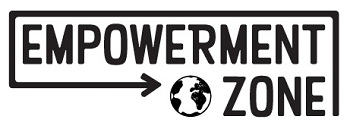Usually, I do fill up my reusable water bottle from our beautiful Southern Cross Pottery water purifier on the bench at home. I love the taste of the water that comes out of the purifier compared with the chemical-heady scent of Brisbane's tap water. But, we have some little munckins in our house that love to empty the purifier and not refill it. Or, it may be that I'm on-the-go and need a water refill, but my tummy just can't handle another dose of chlorine.
Well now, there is no need for anymore excuses because we have some fantastic water filter bottle choices at Biome. What about when you're camping and only have muddy creek water, you ask? Still no excuses...
The Fill2Pure stainless steel water bottle removes 99.99% of contaminants and according to the manufacturer will prevent most water borne illnesses for travellers. They say you can even fill from a muddy creek and instantly drink safe, clean water. Fill2Pure elimiates chlorine as well as fluoride, an important feature for many people who live in areas where fluoride is added to the water, such as Brisbane. See the details below of exactly what is removed.
While a Fill2Pure bottle requires one to suck water through the filter with some gusto, the Australian-designed and made (hoorah!) BPA-free 321water filter bottle filters by a plunger or french press mechanism. This allows the clean water to be easily sipped from the bottle. The 321water bottle's carbon filter absorbs chlorine, organic compunds and other unpleasant odours, so it is ideal for anyone who simply wants great tasting water on the go.
Fill2Pure also provide a BPA-free plastic version that is much easier to drink from because you can squeeze the bottle to help push water through the filter. This would be suitable for children.
What does the Fill2Pure filter eliminate
Fill2Pure removes up to 99.9% of contaminants including:
- Aesthetics: unpleasant taste, odours, dirt, silt, cloudiness, sediment
- Micro-biological organisms: harmful bacteria, pathogens, Giardia, E-coli, etc.
- Chemicals: Chlorine, flouride, arsenic, detergent, pesticides, DDT, DDD, PCB, PCE, industrial waste, etc
- Dissolved solids: heavy metals - aluminium, asbestos, copper, lead, zinc, mercury, etc.
- Radiologicals: Radon, Radium, Uranium, etc.
The only equivalent in our benchtop ceramic water filter systems is the Fluoride Reduction water purifier that removes 99.75% of fluoride inexpensively and efficiently. Read here for full details on how the fluoride reduction filter works.
LifeStraw
Thank you to one of our Facebook fans for the referral to this awesome product and business. A visit to this website helps put back into perspective that our tap water is nothing to be complained about! LifeStraw is a personal water filter (like a large straw) that makes it possible to drink from any freshwater creek, lake or puddle and is being used throughout the developing world. There's also an incredible saving in resources compared with bottled water.
















 Are you a tree flusher? We love the
Are you a tree flusher? We love the 














